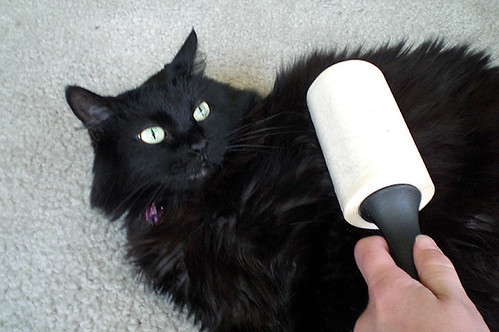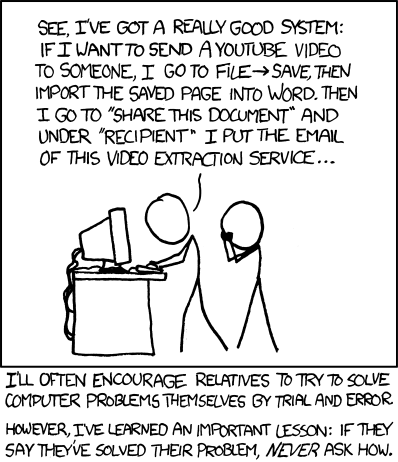BuzzFeed is not known to be a shining beacon of quality journalism. It has a reputation for link-bait headlines (“38 Crazy Things You Never Knew About Kangaroos”) leading to GIF-laden lists. It publishes quizzes (answer a bunch of seemingly random questions before a script shows you the logical conclusion of your answers) so unscientific that no one should ever take them seriously for big life decisions.
BuzzFeed thrives on the short attention span of Generation Z—children born into an age when they can expect news to be spoonfed to them in bullet points and images.
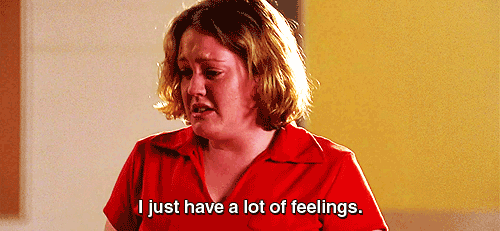
The people behind The Onion certainly saw right through this. They recently launched “ClickHole — Because all content deserves to go viral”, to parody both BuzzFeed and every other content-aggregating website that feeds on social media frenzies. (Worth mentioning: ClickHole parodies far more than BuzzFeed itself; it even incorporates references to “Upworthy, the feel-good viral-video site with a cloying habit of telling you what to think about its clips before you’ve even watched them.”)
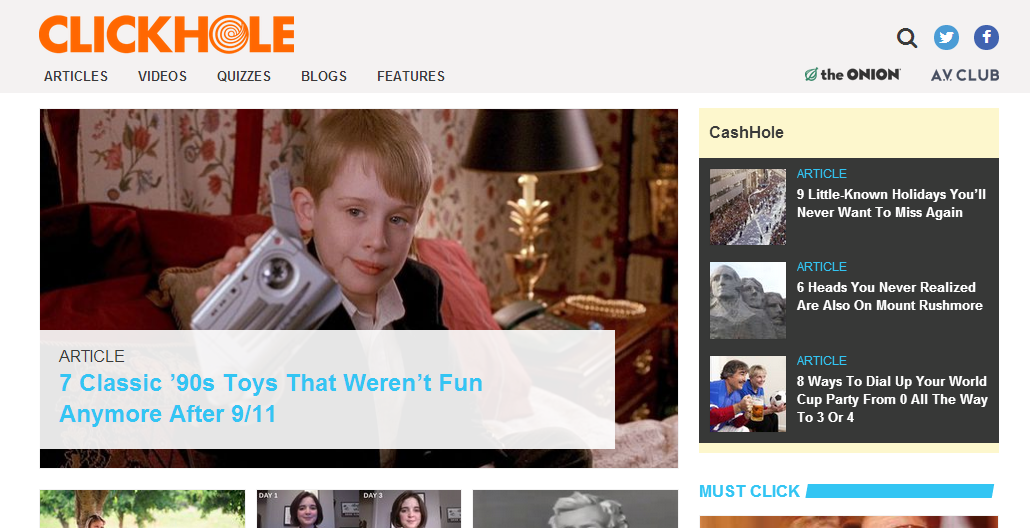
But BuzzFeed has also published some high-quality longform pieces, dubbed BuzzReads. These are serious articles that cover the entire spectrum of subject matter, from politics, to technology, to rape and social justice. They’re of sufficient quality that they could easily pass for an extended newspaper exposé or magazine centrepiece. Targeting a more mature audience seeking longer reads, these feature stories often carry the same socially-liberal perspectives espoused by the rest of the site, while employing words more eloquent than their pop-culture GIFs could ever be.
I’ve had my doubts that BuzzFeed can sell itself in both markets. As great as the quality of their content may be, and as awesome as their access to reliable sources might be (the site has a DC operation with press pass access), it’s hard to “[break] down the divide between the light and the serious.” It’s a challenge the site’s editors realize:
“I think we need to show people that it’s up to us to write it in a way that has the context, has a compelling narrative to it. If you give them more of this and mix it in with fluff, and it’s treated equally by the publication, the public will start to treat it the same way too.”
Two years later, I think they’re starting to make some headway, at least among the social media users who are more publishers than consumers. People are sharing BuzzFeed’s longform essays on social media, using the site’s content to express beautifully the thoughts they could not write themselves.
What’s the reception like? I think many people on the consuming end of content are still sometimes skeptical. And I’m not sure that many people associate BuzzFeed sufficiently with quality content that they would be willing even to give reading BuzzReads a chance.
Case in point? This ignorant comment posted by a BuzzFeed reader on a post about the termination of American Apparel CEO, Dov Charney.

That article wasn’t even a longform essay. BuzzFeed had, through an anonymous leak, obtained an exclusive copy of the CEO’s termination letter, which no other news outlet reportedly had done. It was news, and it was worldly.
Apparently too worldly for this one commenter, who seems to think that only funny, entertaining, and “pertinent” (whatever that means in this context) content deserves to be published on a site from which they expect only entertainment.
I would be a fool to equate this one person’s opinion with everyone else’s. However, this is merely one example of the derisive attitude towards long online content I’ve witnessed first-hand—scroll through my Facebook timeline, or my friends’, and you will certainly find that GIFs and short interactive quizzes get more likes and click-throughs than essays about anything.
Why is that? It’s not like everyone is working 18-hour days in finance… Why don’t we, college students and young professionals, seem to have time for intellectual engagement outside of the classroom, on the Internet?
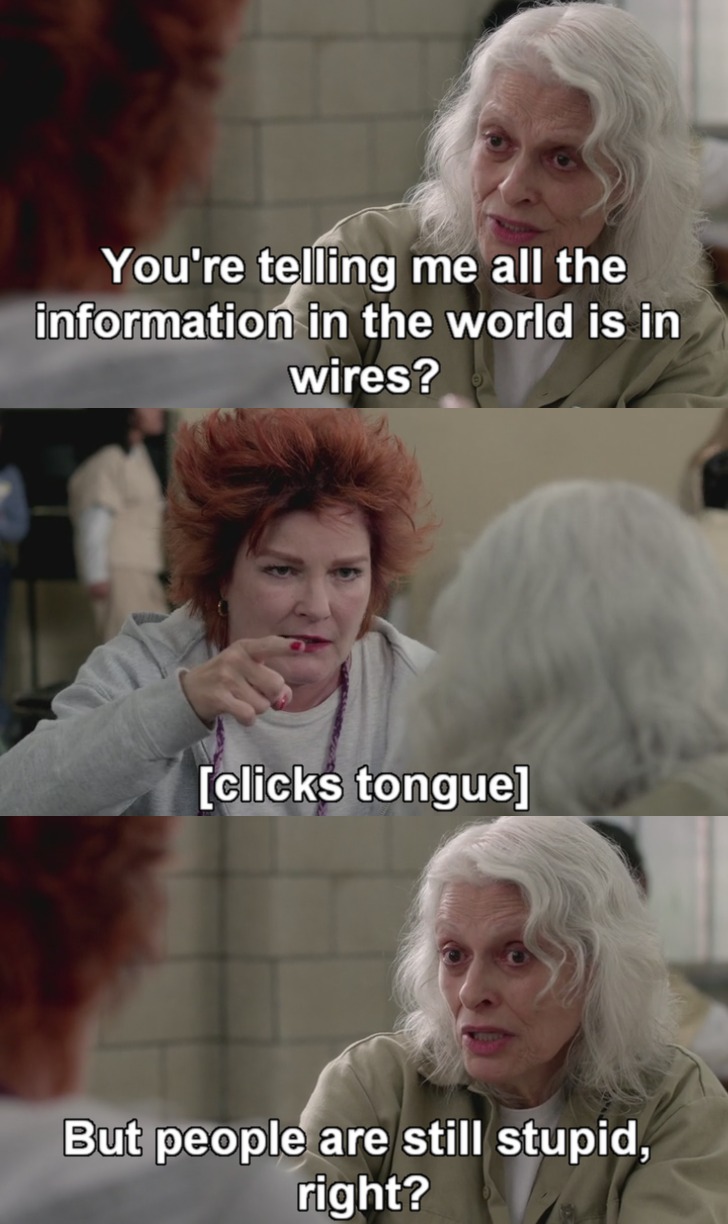
This old lady learns about the Internet for the first time, in Orange is the New Black—my newest favourite show. “But people are still stupid, right?” Indeed, the very technologies that made information so much easier to access, also made it easier to seek information in the shortest tidbits possible. Why read an entire screen of text, if you can get the essentials in 10 animated images?
There’s something deeply disturbing about this trend. It’s different—markedly different—from high school classes recognizing comic books as valid literature. This is a trend that makes education and self-expression more difficult, and less valuable in the eyes of this generation.
Media in our technological age must seek not only to earn pageviews, but also spark deep, insightful conversations about important contemporary issues. Instead of stooping to the lowest common denominator, as BuzzFeed seems to have done in its early launch, they have to champion the cause of literacy and engagement.
Why are genuine discussions about ethnic conflict or self-determination (indeed, a late-night discussion I’ve had quite a few times this week with my friends) outside of the academic environment so rare? Maybe, in part, it’s because of the Internet we consume.


